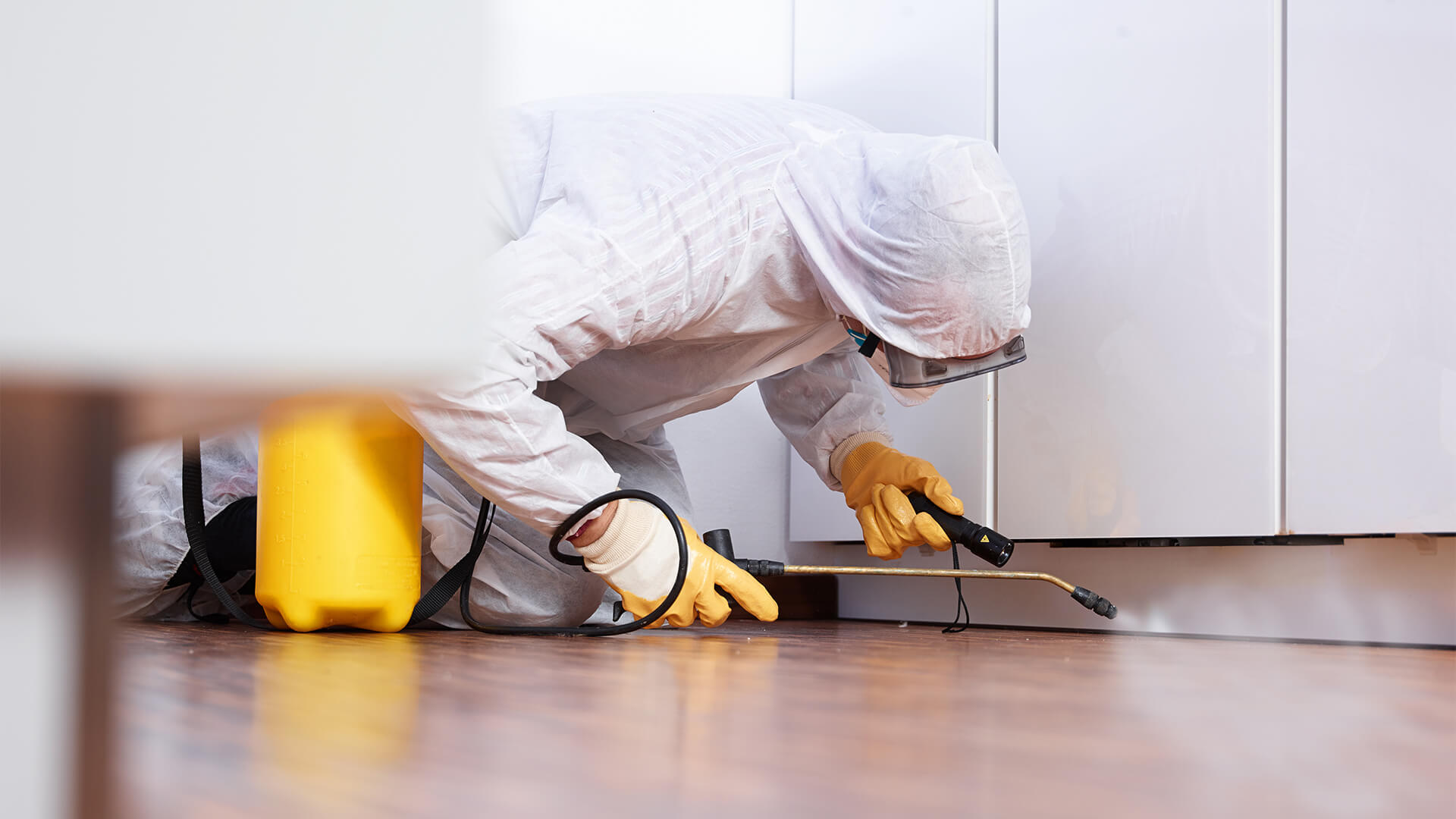Bed Bug Treatment Breakdown: Contrasting Chemical Vs. Non-Chemical Solutions
In the realm of insect control, specifically when taking care of the consistent concern of bed bugs, the selection in between chemical and non-chemical treatment services can be a pivotal one. Both strategies offer unique advantages and downsides, influencing factors such as performance, safety and security factors to consider, and total price. By taking a look at the nuanced details of each approach, a clearer understanding of which course to go after in resolving a bed bug infestation can be attained.
Efficiency of Chemical Treatments
Chemical therapies for bed pest infestations have actually been extensively acknowledged for their potent and rapid effectiveness in eradicating these pests. When thinking about the performance of chemical therapies, it is essential to understand that they can provide a quick and extensive solution to a bed insect issue. Expert exterminators usually depend on insecticides to target bed bugs at different phases of their life process, consisting of nymphs, eggs, and adults. These chemicals generally function by disrupting the bed pests' nerves, bring about paralysis and ultimate death.
Moreover, chemical treatments have the benefit of using recurring results, indicating that they can proceed to remove bed pests even after the initial application. This residual activity is particularly helpful in combating any type of potential re-infestations. In addition, the fast activity of chemical therapies can bring relief to individuals facing serious bed pest infestations, allowing them to gain back control of their living areas swiftly.
Security Problems With Chemical Solutions
When making use of chemical solutions for bed bug treatment is ensuring the safety and security of occupants and the setting,One essential facet that calls for careful factor to consider. While chemical therapies can be reliable in getting rid of bed insects, they might position threats otherwise taken care of appropriately. One of the key safety and security worry about chemical options is the possible damage they can create to human wellness. Direct exposure to specific chemicals used in bed insect treatments can bring about respiratory issues, skin irritability, or various other adverse reactions, specifically in individuals with pre-existing problems or sensitivities. Additionally, incorrect application or dosage of chemical pesticides can result in poisonous residues lingering in the treated location, presenting long-term health risks to owners.
Additionally, the ecological influence of chemical services is one more considerable factor to consider. Some pesticides used in bed bug therapies may be hazardous to advantageous insects, wildlife, and ecosystems if they seep into the dirt or water supply. It is important to utilize chemical treatments carefully, adhering to security standards, and considering much less poisonous choices to reduce these risks and ensure the risk-free and reliable administration of bed insect problems.
Benefits of Non-Chemical Strategies
Thinking about the possible security concerns and ecological effect connected with chemical options for bed insect treatment, discovering non-chemical strategies presents an appealing choice with a number of distinctive advantages. Non-chemical treatments are ecologically pleasant, as they do not contribute to air or water contamination, making them a sustainable selection for bug control.
In addition, non-chemical services can be reliable in targeting bed bugs, consisting of hard-to-reach areas where chemical therapies may not penetrate. Methods such as warm treatment, vacuuming, steam cleaning, and mattress encasements provide detailed removal without the use of damaging chemicals. Furthermore, non-chemical methods can be less turbulent, needing minimal preparation and enabling quicker reentry right into dealt with areas. On the whole, choosing non-chemical bed insect therapy approaches not just focuses on security and ecological defense yet also guarantees efficient and thorough parasite control.
Limitations of Non-Chemical Treatments

In addition, non-chemical treatments commonly call for numerous applications to attain effective eradication. This can be taxing and a fantastic read might not constantly ensure complete elimination of all bed bugs and their eggs, especially in covert or hard-to-reach locations.
Additionally, the success of non-chemical treatments greatly depends on correct implementation and thoroughness, which pest control reviews can be testing for individuals without professional know-how. Poor application of non-chemical approaches might result in incomplete removal, bring about persistent infestations and the need for added therapies.
Consequently, while non-chemical therapies have their benefits, it is important to acknowledge these constraints and consider them when identifying the most effective technique for managing bed bug infestations.
Expense Contrast: Chemical Vs. Non-Chemical Options
Offered the constraints connected with non-chemical treatments, a crucial aspect to evaluate in the context of bed insect management is the expense contrast between chemical and non-chemical options. In contrast, non-chemical therapies like heat therapy or heavy steam can be a lot more costly, with prices varying from $1,000 to $6,000 for a whole home. While the preliminary expense of chemical therapies might seem lower, multiple therapies might be required to fully eradicate the problem, potentially raising the general expense.
Verdict

Taking into consideration the possible safety concerns and environmental influence linked with chemical solutions for bed insect treatment, discovering non-chemical approaches provides an appealing alternative with several unique benefits.Given the constraints associated with non-chemical treatments, a vital element to evaluate in the context of bed pest management is the expense comparison between chemical and non-chemical options. In contrast, non-chemical therapies like warmth therapy or vapor can be more costly, with click for info costs ranging from $1,000 to $6,000 for an entire home. While the first expense of chemical treatments may seem lower, several therapies may be called for to completely eliminate the problem, possibly boosting the overall cost.In verdict, when contrasting chemical and non-chemical bed bug treatment choices, it is crucial to consider efficiency, safety, advantages, constraints, and price.
Comments on “High Quality A1 Pest Control Services Charlotte - Shield Your Home”